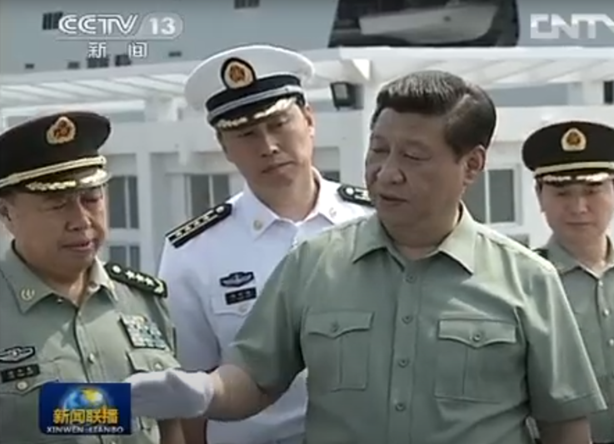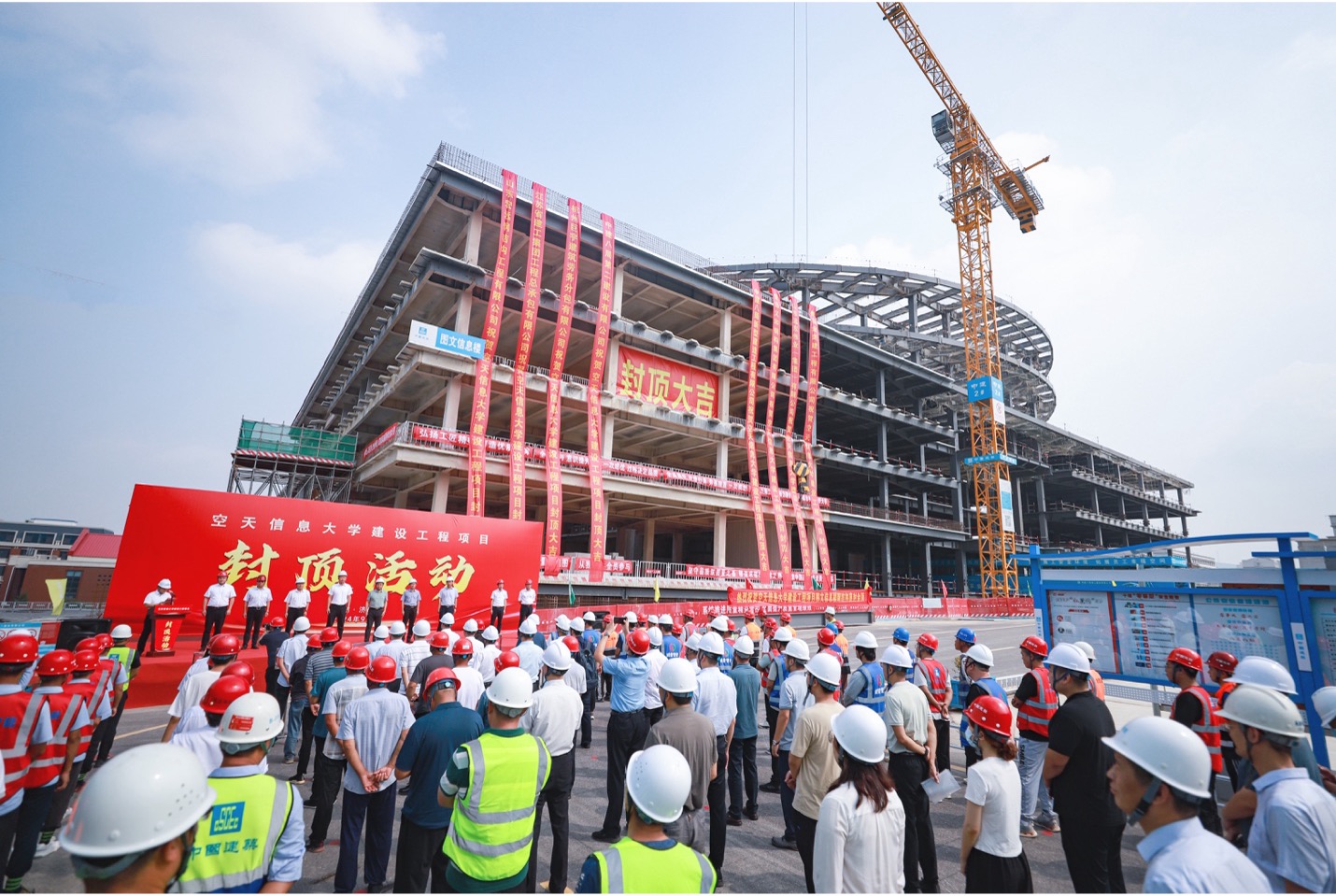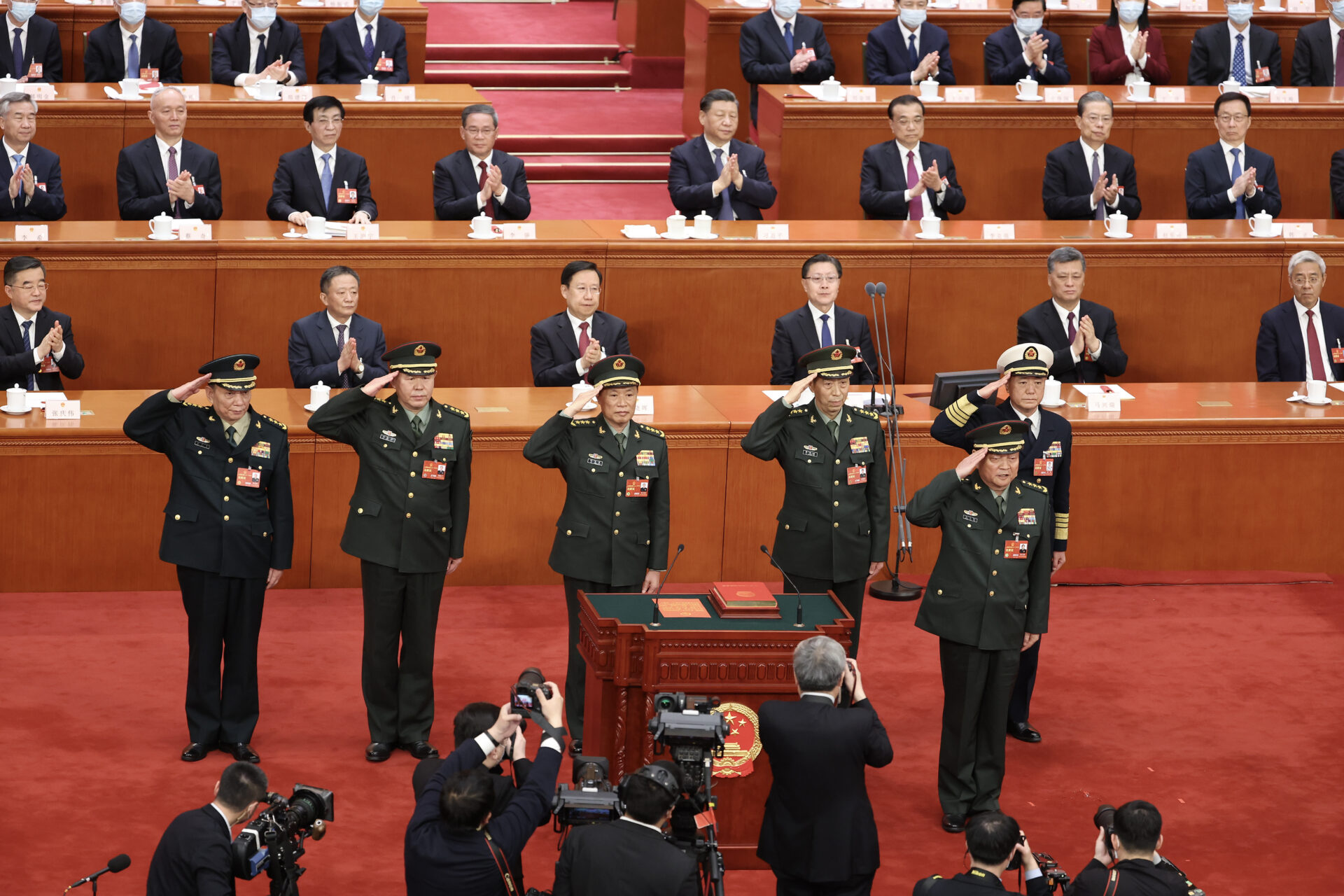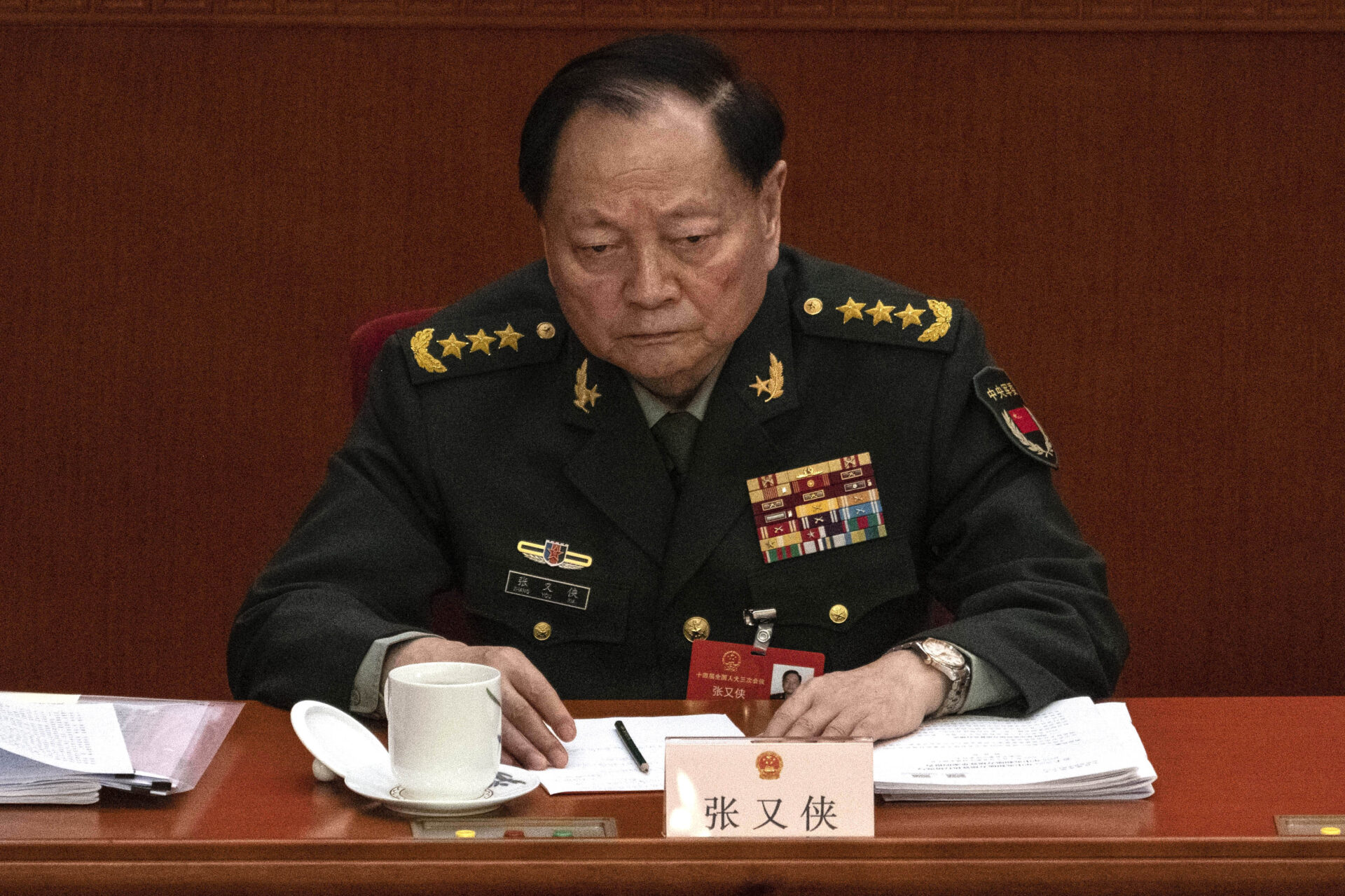
Admiral Hu Zhongming: The Chinese Navy’s ‘Multi-Faceted’ New Leader
Admiral Hu Zhongming: The Chinese Navy’s ‘Multi-Faceted’ New Leader
Executive Summary
- Admiral Hu’s expertise in undersea warfare is considered crucial as the PLAN prepares for potential conflicts in East Asia, particularly against the threat posed by the superior US submarine fleet.
- Hu is recognized as one of the finest submarine officers of his generation, having commanded both diesel-electric and nuclear-powered submarines, and participated in the PLAN’s first circumnavigation of the globe.
- He has played key roles in designing policies for the submarine force and has demonstrated a commitment to undersea warfare, attending events related to submarine capabilities and tactics.
- Hu Zhongming has familiarity with other service arms, including the PLAN Marine Corps, and has observed their training exercises, contributing to his understanding of joint operations. He also led the Northern Theater Command Navy, which provided him with experience in leading a broad spectrum of naval capabilities.
The Chinese Navy has a new Commander, and his name is Hu Zhongming (胡中明) (81.cn, December 25, 2023). Though Admiral Hu is little known outside Chinese military circles, his appointment has major implications for China’s rise as a naval power—and all those it impacts. As service chief, Hu’s primary responsibility is to man, train, and equip the People’s Liberation Army Navy (PLAN), building it into a force that can effectively conduct the growing catalog of missions to which it is assigned. Admiral Hu himself will not make decisions about how Chinese naval power is ultimately used in war or peace, as that responsibility now largely falls to the PLA’s joint Theater Commands. But his leadership will directly affect whether or not operational forces can develop the capabilities needed to realize Beijing’s maritime ambitions in East Asia and beyond.
There are compelling reasons to examine Hu’s background and consider how it might inform his command of the PLAN. Open-source Chinese language materials provide insights into pivotal events in Hu’s career. Analysis of these provide an indication of how his skills and experience might be applied to the PLAN’s most pressing concerns. Hu is perhaps uniquely qualified for the post and is certain to play a very constructive role helping the PLAN progress through the next phase of its development. But his job will not be easy.
| Year(s) | Position(s) Held |
| 2004-2013 | Captain of a Jin-class submarine assigned to the 2nd Submarine Base; by 2011, promoted to Chief of Staff of the 2nd Submarine Base |
| 2013-2014 | Commander of the 2nd Submarine Base; promoted to Rear Admiral |
| 2014-2016 | Assistant to the PLAN Chief of Staff |
| 2016-2019 | PLAN Deputy Chief of Staff |
| 2019-2022 | Commander of the Northern Theater Command Navy; promoted to Vice Admiral |
| 2022-2023 | PLAN Chief of Staff |
| 2023-present | PLAN Commander; promoted to full Admiral |
Hu Zhongming’s Career (2004-present)
A “Multi-Faceted” Submarine Officer
Hu Zhongming, born in January 1964, in Qingdao, is among the finest submarine officers of his generation. By his early 30s, he had risen to command his own diesel-electric boat in the PLAN’s North Sea Fleet. His submarine career took a twist in 2000, when he was selected for training to become the commanding officer of a surface ship, the Type 052 destroyer Harbin (112). This unusual transfer to another warfare community was the result of a fleet initiative to give outstanding young officers like Hu the opportunity to escape the narrow path of a typical PLAN officer career and become more “multi-faceted (复合型)” leaders. [1] Hu’s brief stint as a surface warfare office included participation in the PLAN’s first circumnavigation of the globe (2002)
Hu returned to the submarine force, where he continued to outshine his peers. In February 2004, he was selected to serve as the commander of the first boat of the new Jin-class nuclear-powered ballistic missile submarines (SSBNs), then still under construction (China Youth Daily, December 6, 2008). Hu excelled in his new assignment, winning numerous awards and accolades. In September 2006, for example, the PLAN formally recognized him as an “outstanding grassroots officer.” In 2008, while still serving as the captain of the Jin-class SSBN, then-Senior Captain Hu was chosen as a “model” member of the PLA. [2] In April 2009, on the 60th anniversary of the PLAN’s founding, the PLA Daily profiled Hu as one of four “new generation” navy captains—the only submariner to be thus honored. [3]
During sea-trials for his Jin-class SSBN, Hu dealt with a near-catastrophic equipment failure. While operating in just 100 meters of water, the boat’s dive planes got stuck at a 15-degree angle, with the vessel rapidly descending. According to PLA accounts, Hu “responded decisively,” ordering that the main ballast tank be blown. This arrested the boat’s descent just in time to avoid calamity, though its bottom did reportedly scrape the sea floor. Hu’s brush with death perfectly captured the PLAN submarine force mantra: “if you are afraid of dying, don’t become a submariner.” [4]
In early 2013, Hu was promoted to the Commander of his unit, the 2nd Submarine Base (Sanya, Hainan). Within weeks of assuming the post, he hosted General Secretary Xi Jinping during his visit to the Base. On April 9, 2013, Xi toured a Jin-class ballistic missile submarine commanded by Hu’s subordinate, Wei Bing (韦兵). As the base commander, Hu likely provided narration for the visit and answered Xi’s questions about the boat. [5] Contemporaneous television news coverage showed him accompanying Xi as he boarded the submarine (CCTV13, April 11, 2013). However, it is unclear what impact—if any—this early contact had on Hu’s subsequent career trajectory.
Expertise In Undersea Warfare
As PLAN Commander, Admiral Hu must prepare the service for great power conflict in East Asia, which is Beijing’s priority theater. Ultimately, that means being able to defeat a regional opponent—Japan, the Philippines, or Taiwan—presumed to be operating in concert with the US military. This presents a huge challenge. The PLAN still has no ready and reliable answer to the US submarine fleet, which is the best in the world and arguably the greatest threat to any major Chinese maritime military campaign (CIMSEC, March 21, 2022; CIMSEC, May 18, 2023).
Admiral Hu’s background as a submarine officer makes him especially well-qualified to lead service efforts to confront the US undersea challenge. After over a decade commanding both nuclear and conventional boats, he almost certainly has had first-hand experience operating against US and Japanese submarines. Moreover, since leaving front-line duty, Hu has played key roles designing policies to guide the development of the submarine force. As an Assistant to the Chief of Staff at the PLAN Headquarters, he participated in events such as a symposium on how PLAN educational institutions might best meet the training needs of Chinese submariners (Qingdao, October 2015) and a workshop on improving the employment, operational methods, and training of the PLAN submarine force (Ningbo, December 2015). [6] Later, as PLAN Deputy Chief of Staff, he participated in events like the PLAN submarine force’s 2018 annual work meeting (Qingdao, January). Among other agenda topics, this meeting discussed ways to leverage the force’s unique ability to “turn the tables against more powerful enemies (以弱胜强).” [7] As the PLAN Chief of Staff, then-Vice Admiral Hu further demonstrated his interest in and commitment to undersea warfare by attending the second annual undersea warfare wargaming competition, “Underwater Vanguard (水下尖兵),” held in Qingdao in November 2022. [8]
Familiarity With Other Service Arms
In late 2014, then-Rear Admiral Hu Zhongming was newly minted as Assistant to the PLAN Chief of Staff. In this new role, he began the process of learning about other PLAN warfare communities, or “service arms (兵种)”—a prerequisite for future senior command. The service arm most foreign to his own experience was likely the PLAN Marine Corps (PLANMC), then in the process of diversifying its mission set. Hu was given a front row seat as the service implemented its new doctrine of “all-domain operations (全域作战能力).” In January 2015, for example, he traveled to north China’s Jilin province to witness the PLANMC’s early foray into cold-weather training. [9] In September 2015, he journeyed south to Yunnan province to observe “Jungle-2015,” a major live-fire exercise held to bolster the PLANMC’s ability to operate in mountainous jungle terrain. [10] In January 2016, Hu went west to Xinjiang to watch the PLANMC conduct a live-fire exercise in the Gobi Desert. [11]
By early 2016, Hu had been promoted to PLAN Deputy Chief of Staff. The post gave him more room to exercise his ability to lead diverse forces. He was selected to serve as the PLAN exercise director for “Joint Sea-2017,” a major Sino-Russian naval exercise held each year since 2012. The 2017 iteration involved two major phases: the first held in the Baltic Sea (July), the second in the Sea of Japan (September). China assigned three ships to participate in phase one (the destroyer Hefei, the frigate Yuncheng, and the replenishment ship Luomahu). Vessels assigned for phase two included the destroyer Shijiazhuang, frigate Daqing, replenishment ship Dongpinghu, and the submarine rescue ship Changdao (Xinhua, July 27, 2017; Xinhua, September 25, 2017). Joint Sea-2017 was an enormously complex undertaking involving both planning discussions ashore and at-sea exercises encompassing subjects such as air-defense, search and rescue, anti-submarine warfare, and submarine rescue. Nevertheless, it appears to have been a major win for Sino-Russian naval cooperation—and a direct reflection on Hu’s leadership skills. [12]
By 2019, Hu was chosen to become the Commander of the Northern Theater Command Navy, based in Qingdao. This made him ultimately responsible for the readiness of dozens of units, notably including two destroyer flotillas, two frigate flotillas, the 1st Submarine Base, two conventional submarine flotillas, and multiple aviation units. Hu’s two years in Qingdao marked the culmination of his five-year preparation to command the full breadth of PLAN forces.
Experience In Training And Education
During his tenure, Admiral Hu’s most vexatious challenges will likely involve personnel. He will be haunted by a set of seemingly-insuperable problems: How can the PLAN effectively train—and keep—personnel when the navy is growing and developing at a near-wartime pace? How can it ensure that new sailors, most of whom probably come from poor educational backgrounds, can quickly develop skills needed to competently operate the hi-tech equipment the service is procuring? How does the navy instill sailors with a sense of urgency when four decades of peace make conflict seem remote? How does the PLAN transform inept operational commanders—a significant problem in the Chinese military—into officers capable of leading forces in modern naval conflict (PLA Daily, June 22, 2023)? These challenges are not new, but if the service is to achieve the state of readiness Xi Jinping desires with the speed he demands, real progress must be made on Hu Zhongming’s watch (Xinhua, April 12, 2018).
Admiral Hu’s career has prepared him to confront these perennial challenges. Fundamentally, his qualifications stem from his own successes organizing training activities while serving in the submarine service. After he achieved flag rank, however, he began participating in events to broaden his knowledge of how the rest of the PLAN trains and educates its officers and enlisted, such as the annual conclave of senior leaders from PLAN educational institutions (Bengbu, December 2016). [13] He also attended major gatherings to discuss reforms to the PLAN’s system of professional military education, ensuring he is well-briefed on the service’s training and education weaknesses—and the history of policies to remedy them. [14] As assistant to the Chief of Staff, then-Rear Admiral Hu participated in initiatives to improve the “realism” of basic training for enlisted sailors. [15] He even published his own ruminations on the topic, specifically on the need to inculcate the “combat spirit” in every new recruit. [16] Later, as Deputy Chief of Staff, he led efforts to strengthen vocational education across the PLAN. [17] Perhaps most important, he has participated in numerous force-on-force exercises (对抗演习) in the key areas in which the PLAN expects to fight in future conflict, giving him a deep familiarity with the operational strengths and weaknesses of the service he now leads. [18]
Conclusion
With Admiral Hu Zhongming at the helm, the PLAN has a new leader who both understands the big obstacles impeding its development and appears to possess the right qualities needed to surmount them. His naval career shows a great breadth of experience, with each new chapter preparing him for higher leadership. He truly has become the “multi-faceted” officer his early mentors hoped he would.
Admiral Hu’s background makes him eminently qualified to serve as the PLAN Commander. His outstanding performance as a submarine officer, culminating in command of the 2nd Submarine Base, distinguishes him as highly intelligent, conscientious, and dedicated. After being posted to Beijing in 2014, he gained familiarity with the missions and capabilities of the other service arms that would eventually fall under his administrative command. As Commander of the Northern Theater Command Navy, he demonstrated the ability to manage diverse operational forces, laying the foundation for his subsequent return to Beijing. He holds deep expertise on undersea warfare—currently the main warfighting concern for the Chinese Navy—and is well-briefed on all the training and education challenges currently facing the service. In sum, it is difficult to imagine a more suitable officer to lead the PLAN through the next phase of its development.
Notes
[1] 王永山 [Wang Yongshan] and 许森 [Xu Lin], 多岗锻炼培养通才 [“Training on Multiple Posts to Cultivate Generalists”], 解放军报 [PLA Daily], November 6, 2000, p. 6.
[2] 建功军营精武沙场——第九届全军学习成才标兵风采录 [“Building Elite Military Camps—A Record of the 9th Iteration of the PLA-Wide Model Soldiers”], 解放军报 [PLA Daily], September 22, 2008, p. 6.
[3] 人民海军走过六十年风雨征程一代新型舰长走向大洋 [“The People’s Navy Has Experienced 60 Years of Ups and Downs With a New Generation of Ship Captains Going to Sea”], 解放军报 [PLA Daily], April 24, 2009, p. 3.
[4] Ibid.; 孙国强 [Sun Guoqiang] and 马俊 [Ma Jun], 生命线之光–南海舰队某潜艇基地扎实开展政治工作纪实 [The Light of the Lifeline—A South Sea Fleet Submarine Base Engages in Political Work”], 人民海军 [People’s Navy], March 23, 2015, p. 1.
[5] 高毅 [Gao Yi], 马俊 [Ma Jun], 虞章才 [Yu Zhangcai], and 孙国强 [Sun Guoqiang], 扬帆追梦–来自接受习主席检阅和视察部队的报告 [“Setting Sail to Chase One’s Dream—A Report from the Unit that Received Chairman Xi’s Review and Inspection”], 人民海军 [People’s Navy], April 16, 2013, pp. 1-2.
[6] 海军召开潜艇训练与教学座谈会 [“Navy Holds Symposium on Submarine Training and Teaching”], 人民海军 [People’s Navy], October 27, 2015, p. 1; 海军召开潜艇兵力运用及战法训法研讨会 [“Navy Holds Workshop on Submarine Force Employment, Operational Methods, and Training Methods”], 人民海军 [People’s Navy], December 28, 2015, p. 1.
[7] 海军召开年度潜艇工作会议 [“Navy Holds Annual Submarine Work Meeting”], 人民海军 [People’s Navy], January 22, 2018, p. 1.
[8] 海军第二届“水下尖兵”兵棋推演竞赛性考核开赛 [“Navy’s Second Iteration of ‘Underwater Vanguard’ War Gaming Competition-Style Evaluation Begins”], 人民海军 [People’s Navy], November 29, 2022, p. 1.
[9] 郭新华 [Guo Xinhua], 王元元 [Wang Yuanyuan], and 曾行贱 [Ceng Xingjian], 突出实战化全程化练兵提升全域作战能力 [“Highlighting Realistic and Complete Training to Improve All-Domain Operational Capability”], 人民海军 [People’s Navy], January 26, 2015, p. 1.
[10] 尚文斌 [Shang Wenbin], 刘金来 [Liu Jinlai], and 刘文平[Liu Wenping], 大力加强海军陆战队建设进一步提升全域作战能力 [“Greatly Strengthen PLANMC Construction and Improve All-Domain Operational Capabilities”], 人民海军 [People’s Navy], September 18, 2015, p. 1.
[11] 刘金来 [Liu Jinlai] and 蔡年迟 [Cai Nianchi], 大力弘扬人民海军精神 锻造全域作战雄师劲旅 [“Energetically Carry Forward the Spirit of the People’s Navy and Forge A Strong Force Capable of All-Domain Operations”], 人民海军 [People’s Navy], January 25, 2016, p. 1.
[12] 中俄“海上联合—2017”演习进入实兵演练阶段 [“China-Russia ‘Joint Sea-2017’ Enters the Real-Force Drill Phase”], 人民海军 [People’s Navy], July 26, 2017, p. 1; 中俄“海上联合—2017”第二阶段演习兵力集结完毕 [“The Second Phase of China-Russia ‘Joint Sea-2017’ Has Completed”], 人民海军 [People’s Navy], September 19, 2017, p. 1.
[13] 海军召开2016年院校长年会 [“Navy Holds Annual Professional Military Educational Institution for 2016], 人民海军 [People’s Navy], December 30, 2016, p. 1.
[14] 王宏博 [Wang Hongbo], 海军党委常委集体听取院校和训练机构情况汇报 [“Members of the PLAN Standing Committee Meet to Listen to Reports from Professional Military Educational Institutions and Training Organizations”], 人民海军 [People’s Navy], June 4, 2018, p. 1.
[15] 梁小平 [Liang Xiaoping] and 安妮 [An Ni], 海军部署深化新兵实战化训练改革 [“Navy Deepens Reforms to New Sailor Realistic Training”], 人民海军 [People’s Navy], February 10, 2015, p. 1.
[16] 胡忠明 [Hu Zhongming], 抓住关键点激发军人血性 [“Seize on the Key Issue and Inspire Martial Valor”], 人民海军 [People’s Navy], March 17, 2015, p. 3
[17] 陈德洪 [Chen Dehong] and 李坤 [Li Kun], 海军召开总结推开军事职业教育动员部署会 [“Navy Holds a Mobilization Meeting to Recap and Promote Military Vocational Education”], 人民海军 [People’s Navy], April 17, 2019, p. 1.
[18] 张庆宝 [Zhang Qingbao], 海军在南海某空域举行实兵对抗演练 [“Navy Holds Real Force Confrontation Drill in the South China Sea”], 人民海军 [People’s Navy], July 29, 2015, p. 1; 海军在东海某海空域举行实兵对抗演练 [“Navy Holds Real Force Confrontation Drill in the East China Sea”], 人民海军 [People’s Navy], August 28, 2015, p. 1; 海军在南海举行实兵对抗演习 [“Navy Holds Real Force Confrontation Exercise in the South China Sea”], 人民海军 [People’s Navy], July 11, 2016, p. 1; 猛打准打稳打快打 三大舰队砺剑东海 [“Fiercely Strike, Accurately Strike, Calmy Strike, Quickly Strike, The Three Big Fleets Sharpen Their Swords in the East China Sea”], 人民海军 [People’s Navy], August 2, 2016, p. 2.


